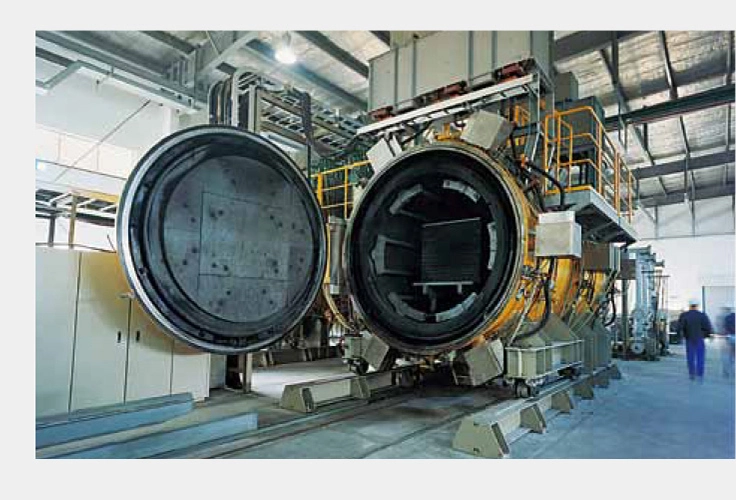
How insulation and energy efficiency impacts your business's carbon footprint
Introduction
Insulation serves as a barrier, helping to regulate temperature and reduce energy consumption in buildings and facilities. By preventing heat transfer, insulation keeps indoor spaces. In this blog, we'll delve into the various types of insulation materials and methods available to businesses, exploring their effectiveness in enhancing energy efficiency and sustainability. Additionally, we'll discuss the environmental benefits of investing in insulation, such as lowering carbon emissions and conserving natural resources.
Furthermore, we'll examine the importance of regulatory compliance, ensuring that businesses meet energy efficiency standards and avoid potential penalties. We'll also touch on the role of insulation in corporate social responsibility efforts.
We'll guide you towards a more sustainable and environmentally responsible business model. So, let's dive in and discover how insulation can significantly impact your business's carbon footprint and overall success.
Importance of Insulation
By acting as a barrier against heat flow, insulation helps to keep buildings warmer in winter and cooler in summer. This not only improves comfort but also enhances productivity and customer satisfaction. Furthermore, proper insulation significantly reduces the need for heating and cooling systems, leading to substantial savings on energy bills. Companies that install high-quality insulation should notice a significant drop in their monthly utility costs, freeing up cash for other vital business areas.
Businesses may reduce their carbon footprint and help fight climate change by reducing the energy needed to heat and cool buildings. This is in line with consumers' increasing demands that companies use environmentally friendly practices, which will improve the appeal and reputation of the brand.
Additionally, insulation reduces the possibility of mold and mildew growth and moisture buildup, both of which contribute to preserving structural integrity. This prolongs the lifespan of buildings and reduces maintenance costs over time, providing long-term benefits for businesses.

Types of Insulation
Businesses have several insulation options, each with its benefits and considerations. Understanding the different types of insulation can help companies make informed decisions to maximize energy efficiency and cost savings.
Fiberglass insulation is one of the most popular kinds. It is composed of tiny glass fibers and is reasonably priced and available in rolls, batts, or loose-fill formats. Fiberglass insulation is a great way to stop heat transfer and works well for crawl spaces, attics, and walls, among other places.
Cellulose insulation is a green material with exceptional thermal performance. It is derived from recycled paper fibers treated with chemicals to prevent fires. Cellulose insulation works exceptionally well to stop air leaks in cavities and can be sprayed or blown into.
In addition to offering excellent insulation, it helps enhance indoor air quality by lowering it. However, it tends to be more expensive than other types of insulation.
Insulation using foam boards Rigid panels composed of polystyrene, polyisocyanurate, or polyurethane make up foam board insulation. It has a high heat resistance, is lightweight, and is simple to install. Foam board insulation is frequently utilized for flooring, walls, and roofs.
Insulation with Reflectivity Usually, aluminum foil is laminated over various materials, such as cardboard or plastic, to create reflective insulation. Because it disperses radiant heat away from the house, it is helpful in hot areas. Reflective insulation in walls, roofs, and attics is standard.
Impact on Operating Costs
The impact of insulation on operating costs is significant for businesses looking to optimize their financial resources while maintaining a comfortable indoor environment. By investing in quality insulation, companies can experience considerable savings on energy expenses over time.
One of the primary ways insulation reduces operating costs is by minimizing the need for heating and cooling systems. As a barrier, insulation stops heat from transferring from interior to outdoor areas. Thus, insulation lowers the energy needed to keep a structure warm during the winter by assisting with heat retention in the interior. Likewise, insulation reduces the need for air conditioning in the summer by keeping heat from entering the building and keeping it cool. Businesses benefit from a significant annual decrease in their heating and cooling expenses.
Furthermore, adequate insulation contributes to a more consistent interior temperature, which lessens the requirement for ongoing HVAC system changes. This lowers long-term maintenance and replacement expenses by extending the lifespan of heating and cooling equipment and saving energy.
Additionally, insulation can contribute to a more sustainable business model by improving energy efficiency.
The impact of insulation on operating costs is multifaceted and far-reaching. By effectively managing indoor temperature and reducing energy consumption, businesses can enjoy significant savings on heating and cooling expenses while supporting sustainability initiatives. Investing in insulation is a wise financial decision and a responsible environmental choice for businesses of all sizes.
Environmental Benefits
Insulation offers numerous environmental benefits that go beyond just cost savings for businesses.
Insulation helps decrease buildings' and facilities' carbon footprint by minimizing the need for heating and cooling systems powered by fossil fuels. This reduction in emissions contributes to slowing the pace of climate change and protecting the planet for future generations.
Additionally, insulation helps conserve natural resources by lowering overall energy consumption.
Furthermore, insulation contributes to improved air quality by reducing the release of pollutants and greenhouse gases into the atmosphere. Businesses can reduce their emissions of dangerous pollutants, including sulfur dioxide, nitrogen oxides, and particulate matter—pollutants that can be hazardous to human health and the environment—by decreasing their energy use.
Additionally, businesses that invest in insulation can improve their reputation and attract environmentally concerned clients and staff by showcasing their dedication to sustainability and energy efficiency. This may result in better staff morale, a rise in brand loyalty, and beneficial effects on the community.
Insulation offers significant environmental benefits by reducing greenhouse gas emissions, conserving natural resources, improving air quality, and fostering a culture of sustainability.
Regulatory Compliance
Regulatory compliance is essential for businesses seeking to operate responsibly and avoid potential penalties or legal issues. Regarding insulation, companies must adhere to various building codes, standards, and regulations set forth by government agencies and industry organizations.
One of the primary regulatory considerations for insulation is energy codes, which establish minimum requirements for energy efficiency in building construction and renovation projects. These codes typically prescribe specific insulation levels, thermal performance standards, and installation practices to reduce energy consumption and greenhouse gas emissions.
In addition to energy codes, businesses must comply with environmental regulations related to insulation materials and practices. These may include restrictions on using certain chemicals or materials with known ecological hazards and requirements for proper disposal or recycling of insulation waste.
Furthermore, building permits and inspections are often required to ensure that insulation installations meet regulatory standards and building code requirements.
By staying informed about relevant regulations and working with knowledgeable professionals, businesses can ensure that their insulation projects meet or exceed compliance requirements. By investing in insulation that meets regulatory requirements and supports sustainability goals, companies can enhance their reputation, attract customers, and position themselves for long-term success in a rapidly evolving marketplace.
By understanding and adhering to relevant codes and standards, businesses can minimize risks, enhance credibility, and contribute to a more sustainable built environment.
Long-Term Sustainability
Long-term sustainability is crucial for businesses looking to future-proof their operations and minimize environmental impact over time.
One of the primary benefits of insulation for long-term sustainability is its ability to lower energy consumption and greenhouse gas emissions throughout a building's lifespan.
Insulation helps maintain building integrity and prolongs the lifespan of construction materials and systems by preventing moisture infiltration, temperature fluctuations, and structural degradation.
Additionally, insulation supports sustainability by conserving natural resources and minimizing waste generation. By reducing energy consumption, businesses decrease the demand for finite resources such as fossil fuels, coal, and natural gas while lowering emissions associated with resource extraction and production.
Furthermore, insulation can enhance indoor air quality and occupant comfort, promoting productivity, health, and well-being over the long term. By establishing a more comfortable and healthier indoor environment, businesses may enhance productivity, decrease absenteeism, and improve employee satisfaction.
Insulation, a home energy solution, contributes to long-term sustainability by reducing energy consumption, lowering greenhouse gas emissions, extending building lifespan, conserving resources, and enhancing occupant comfort and well-being. By investing in insulation as part of a comprehensive sustainability strategy, businesses can achieve lasting benefits for the environment and their bottom line.
Turning Ideas into Action Implementation Strategies Explained!
Imagine you have a brilliant idea for a game—the coolest ever! But how do you get your friends to play it? That's where implementation strategies come in! They're like special tricks for turning plans into action.
In grown-up land, these spray foam insulation crawl space strategies help people implement awesome ideas, like new programs in schools or businesses. Maybe teachers want to use a fun way to teach math. An implementation strategy could be creating a catchy song or a colorful game to make learning exciting!
Conclusion
You may have a great way to improve the schoolyard. Think about explaining your idea to people and what materials you need to make things easy. You could even make a poster to spread the word and excite everyone!
Remember, even the most significant ideas start small. You can make extraordinary things happen with some planning and the right tools! So next time you have a great idea, don't be shy – Contact us anytime as we use these tips and take action! The world needs your awesome ideas!
Reach Out To Spray Foam Insulation Westminster
Delivering Quality Insulation Solutions in Westminster, Colorado
Call us today!